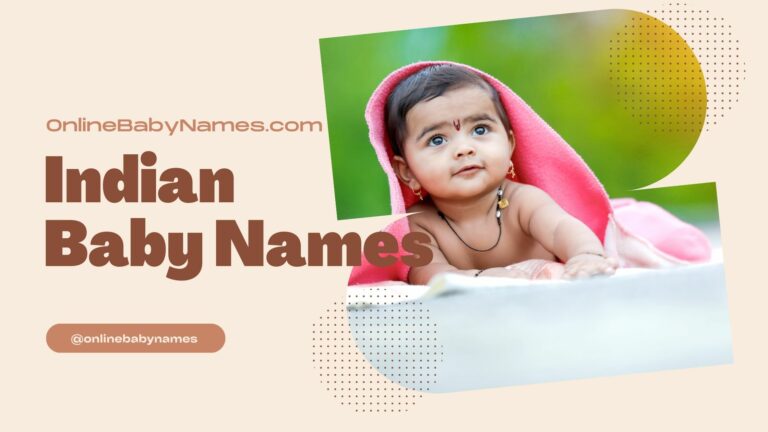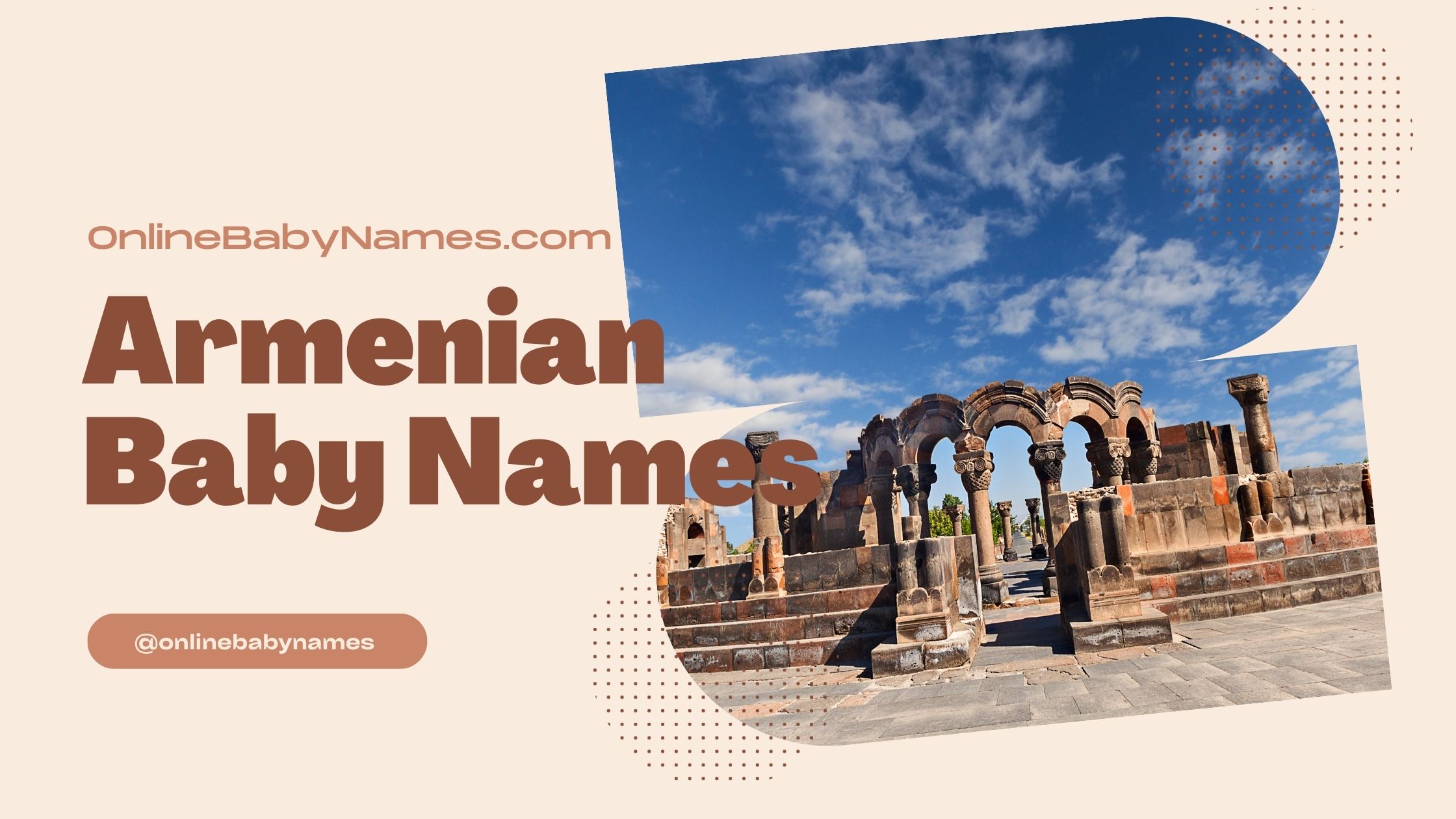
Finding the perfect name for your newborn can feel like a daunting task, but when you dive into the beautiful world of Indian baby names, it can become an incredibly joyful experience. Indian names carry rich history, cultural significance, and unique meanings, making them ideal choices for parents looking to convey a strong connection to tradition while embarking on a new journey as a family.
Indian baby names combine beauty and depth, leaving a lasting impression on both the hearts and minds of those who hear them. Unlike some trendy Western names that lack individuality, Indian baby names often stand out as unique and meaningful choices. Whether influenced by religion, regional traditions, or family history, these names undoubtedly make a statement.
So, if you’re considering an Indian baby name for your baby, you’re in for a fascinating journey! I’ll be here to help guide you through the various name choices and offer some insight into their origins and meanings. By the end of this adventure, you’ll be well-equipped to select a name that’s perfect for your little one.
Exploring Traditional Indian Baby Names
When it comes to naming their children, Indians often have a rich and vast reservoir of inspiration. Traditional Indian baby names can be both unique and meaningful, revealing a wealth of history and cultural significance. In this section, I’ll dive into the fascinating world of traditional Indian baby names and shed light on some of the most popular naming trends and practices.
India is a land of diversity and its multicultural essence is evident in its baby names. There are two primary categories online websites recommend when exploring Indian baby names: Hindu names and Muslim names. While these two religious traditions certainly account for a significant portion of Indian names, there are plenty of other naming practices and trends that span multiple faiths and cultural backgrounds.
Here are just a few examples of traditional Indian baby names:
- Hindu Names: Sanjana, Arjun, Aditya, Aarav, Riya
- Muslim Names: Aisha, Zara, Farhan, Ibrahim, Adil
An important aspect that sets Indian baby names apart is their meaning and origin. Many names come from ancient languages like Sanskrit and Arabic, with meanings that often convey a deep spiritual or philosophical message. Parents often select names that reflect personal values or aspirations for their child’s future.
Some common themes found in Indian baby names include:
- Gods and goddesses (e.g., Ram, Saraswati)
- Nature (e.g., Arvind, Rohini)
- Qualities (e.g., Alok, Kiran)
- Symbols (e.g., Om, Swara)
Moreover, traditional Indian baby names can contain specific prefixes and suffixes that are usually gender-specific. For instance, boys’ names may have ‘Deva’ (meaning ‘God’) or ‘Raj’ (meaning ‘King’) incorporated, whereas girls’ names might include ‘Devi’ (meaning ‘Goddess’) or ‘Rani’ (meaning ‘Queen’). These prefixes and suffixes offer an added layer of significance and make the names even more unique.
In today’s fast-paced world, the resurgence of traditional Indian baby names has seen a steady increase, as more and more parents look to honor their heritage and provide their children with names that have an air of timelessness. So, whether you’re just starting your baby-naming journey or are simply curious about the fascinating world of Indian baby names, exploring the wealth of tradition in India is sure to be an enlightening experience.
The Significance of Indian Baby Names
Upon welcoming a new baby into the world, an important step for Indian parents is choosing a meaningful name for their little one. Indian baby names are not only a reflection of the rich culture and history of the country, but they also hold great significance in defining a person’s identity and embodying their hopes, dreams, and aspirations.
Many Indian baby names are inspired by nature, mythology, and spirituality. In Hinduism, it’s common for names to be derived from Hindu gods, goddesses, and sacred characters in mythology. For instance, Arjun, Krishna, and Lakshmi are all popular names in India.
Numerology plays a crucial role in the selection of Indian baby names. Based on ancient traditions, specific numbers are believed to hold vibrational energy that can influence a person’s luck, success, and overall well-being. Consequently, parents often consult with numerologists before finalizing their baby’s name.
Here’s a quick look at numerical significances according to Indian tradition:
| Number | Significance |
|---|---|
| 1 | Leadership |
| 2 | Balance |
| 3 | Creativity |
| 4 | Stability |
| 5 | Communication |
| 6 | Nurturing |
| 7 | Spirituality |
| 8 | Organization |
| 9 | Humanitarianism |
Another vital aspect of Indian baby names is the pronunciation, as the sound of a name is just as important as the meaning behind it. Phonetics and unique sound patterns help evoke clarity and harmony, ultimately impacting one’s destiny.
Some popular Indian baby names and their meanings include:
- Aarav (Peaceful)
- Aditi (Freedom, boundless)
- Diya (Light)
- Riya (Graceful)
Diversity in India also contributes to the vast array of baby names; with over 2,000 ethnic groups and more than 19,500 languages being spoken across the country, there’s no shortage of inspiration. Whether it’s a name rooted in Hindi, Gujarati, Punjabi, or another local language, Indian baby names are sure to evoke a strong sense of identity and cultural pride.
To sum up, the significance of Indian baby names lies in their ability to weave together deeper meanings, numerological significance, and cultural identity into a harmonious and auspicious life-marker. It’s no wonder that selecting the perfect name is such a vital part of Indian tradition.
Sanskrit Origins: A Wealth of Baby Names
Sanskrit is an ancient language, dating back over 3,500 years and acting as the basis for many Indian languages. With its timeless and expansive vocabulary, it’s no surprise that Sanskrit serves as the foundation for a plethora of unique and meaningful Indian baby names.
As one of the oldest languages worldwide, it’s also considered auspicious and sacred in India. As a result, numerous Indian parents choose Sanskrit names for their babies, imbuing them with a blend of cultural significance and spiritual sentiments.
What sets Sanskrit names apart is the depth of meanings attached to them. They often embody virtues, characteristics, or aspects of deities, making them an ideal way to express hope and aspirations for the child’s future. Here are a few examples of beautiful Sanskrit names and their meanings:
- Aarav: Derived from the Sanskrit root ‘rav,’ which signifies peace and melody. Aarav is commonly believed to mean peaceful or musical.
- Aadya: Meaning the first or foremost, this name is often associated with Goddess Durga, the protectress of all that is good.
- Vihaan: A popular boy’s name, which conveys dawn or the first ray of the sun, symbolizing a new beginning and hope.
Another aspect that highlights Sanskrit’s influence is the wealth of unisex names it offers. Parents looking for gender-neutral options can consider names like:
- Arya: Rooted in the ancient word ‘Arya,’ which signifies noble or honorable. Popularized by the television series, Game of Thrones, it has become a sought-after name for both boys and girls.
- Kiran: Literally meaning ray of light or sunbeam, Kiran is a popular choice for parents seeking a name with brightness and positivity.
With a vast repertoire of names to choose from, it’s essential to remember that adopting Sanskrit names often implies understanding their significance and making conscious connections to the child’s cultural heritage. While these names possess beauty and depth, they should also carry a relevance and resonance with your baby’s personality and the values you hope they embody.
Ultimately, delving into the treasure trove of Sanskrit baby names garners a connection to India’s rich history and cultural legacy. So take your time, explore, and appreciate the wealth of names at your disposal; you might just find the perfect one to bestow upon your little one.
The Role of Religion in Indian Naming Traditions
When it comes to Indian baby names, religion plays a significant role in shaping naming traditions. India is a land of diverse cultures and faiths, and different religions have their own unique customs and practices for naming babies. These distinct systems have evolved over centuries and remain a vital part of the country’s social fabric.
Hinduism, the dominating religion in India, strongly influences the naming process. Hindu baby names are often based on auspicious syllables, Hindu gods, goddesses, and mythological characters. Many Hindu names also have spiritual meanings that are believed to connect the child with positive energies and virtues.
- Notable Hindu naming traditions include:
- Namkaran, a ceremony conducted on the 11th, 12th, or 21st day after the baby’s birth
- Choosing names based on the baby’s birth star (Nakshatra)
- Names derived from one of the many incarnations of Lord Vishnu or Shakti
Islam is another major religion in India with its own set of naming customs. Muslim baby names are usually Arabic in origin and often carry deeply meaningful messages that reflect virtuous qualities. In Islamic culture, it’s essential to give a child a name that reflects their faith, follows the teachings of the Quran, and carries a good meaning.
- Aspects of Muslim naming traditions include:
- Relevance to Islamic teachings and principles
- Names that reflect desirable attributes such as piety, patience, and humility
- Prophet Muhammad’s companions’ and descendants’ names are quite popular
Sikhism is yet another religion that influences Indian naming traditions, with a unique system of its own. Sikh baby names typically consist of a first name combined with the common Sikh surname Singh for boys or Kaur for girls. The first names often carry spiritual meanings derived from the Guru Granth Sahib, the holy scripture of Sikhism.
- Highlights of Sikh naming practices include:
- Names that evoke a sense of equality and brotherhood
- Use of the Gurmukhi script for writing traditional Sikh names
- A strong focus on gender-neutral names that promote equality
Other Indian religions such as Jainism, Buddhism, and Zoroastrianism also contribute to the diversity of Indian baby names with their unique naming conventions. From delving into deep spiritual meanings to cherishing religious teachings and customs, Indian naming traditions underscore the country’s rich religious tapestry and help preserve its cultural heritage. So, while choosing an Indian baby’name, families often pay close attention to these aspects that connect the child with their faith, culture, and community.
Sibling Sets: Pairing Indian Baby Names
When it comes to choosing Indian baby names for siblings, it can feel like a challenge. Don’t worry, I’m here to help with some guidance on how to create harmonious sibling sets. Compatibility, significance, and uniqueness are key factors to consider. Let’s dive in!
The first step in pairing Indian baby names for siblings is finding compatible names that complement each other in terms of meaning or sound. This can be achieved through:
- Looking for names with similar origins or themes, like two names based on Indian mythology or nature.
- Choosing names with a rhythmic flow, such as names that share a common syllable or ending.
- Selecting names with a similar length, as it helps to create a more cohesive sound when spoken together.
Paying attention to the meaning of each name is important as well. It’s ideal to choose names that hold some significance or have a connection in meaning. Here are some paired ideas:
- Aarav (meaning ‘peaceful’) and Aanya (meaning ‘graceful’)
- Dhruv (meaning ‘constant’) and Tara (meaning ‘star’)
- Ishaan (meaning ‘sun’) and Kavya (meaning ‘poem’)
For sibling sets that stand out, opting for unique names is a great choice. Doing so will help your children establish their own identity while still maintaining a connection to their culture. Some unique Indian baby names include:
- Boys: Avyan, Ehan, Reyaan
- Girls: Inaya, Saesha, Zara
An important aspect to consider when pairing Indian baby names is the significance of family traditions. In many Indian families, it’s common to name children after their grandparents or use names that follow a certain pattern. For example, if your elder child’s name starts with “A”, you might want to choose a name for the younger one that also starts with an “A”.
Lastly, do keep in mind that each child is unique, so it’s essential to pick names that resonate with you and your family. While signs and ideas shared in this section can guide you, trust your intuition and personal preferences when finalizing sibling sets. After all, your child will carry the name for a lifetime, and it’ll become a part of their identity. Happy naming!
Celebrating Cultural Diversity with Indian Baby Names
India is well-known for its beautiful tapestry of cultures, traditions, and languages. In light of this cultural diversity, Indian baby names often carry deep meanings and historical significance. As an expert blogger, I’ve had the pleasure of exploring countless Indian names, and I’m eager to share some of that knowledge with you.
Indian baby names can be classified into distinct categories based on several factors, including religion, geography, and language. Some common Indian religions that influence baby names include Hinduism, Islam, Sikhism, and Christianity. Meanwhile, the variety of regional languages adds even more uniqueness to these names. A few of these languages are Hindi, Telugu, Tamil, and Bengali.
Let’s take a look at popular Indian baby names for boys and girls, as well as their meanings:
Boys:
- Aarav: peaceful
- Arjun: warrior
- Dhruv: north star
- Rohit: red light
Girls:
- Ananya: unique
- Diya: light
- Kavya: poetry
- Saanvi: goddess Lakshmi
To better appreciate the cultural and linguistic diversity of Indian baby names, check out the following breakdown of popular names by region:
| Region | Language | Boy’s Name | Girl’s Name |
|---|---|---|---|
| North India | Hindi | Aarav | Ananya |
| South India | Telugu | Dhruv | Kavya |
| East India | Bengali | Arjun | Diya |
It’s essential not only to celebrate this rich diversity but also to understand the meanings and significance behind each name. It’ll provide a sense of connection to one’s roots and help maintain cultural continuity. Indian baby names hold power in their meanings, offering parents an incredible opportunity to choose a name that reflects the identity they wish to instill in their child.
While Indian baby names emerge from different faiths, languages, and regions, it’s crucial to remember that each name carries its unique beauty and significance. I hope that by exploring this incredible world of baby names, you’ll discover the perfect name for your little one, embracing India’s vibrant heritage and continuing the tradition.
Regional Distinctions in Indian Names
India is known for its cultural diversity, and this is reflected in the array of regional baby names available in the country. With over 1.3 billion people and more than 2,000 distinct ethnic groups, it’s no wonder that Indian baby names vary significantly depending on the region they come from. Let’s dive into some of the key regional distinctions in Indian names.
Northern Indian Names
Names from the northern region of India often draw inspiration from Hindu mythology and Sanskrit. Many of these names are unisex, allowing parents to use them for both boys and girls. Some popular examples include:
- Aarav (peaceful)
- Pari (angel)
- Ananya (incomparable)
Southern Indian Names
In the southern part of India, baby names are commonly associated with classical languages like Tamil and Telugu. Parents often choose names with spiritual meanings related to happiness, prosperity, or nature. Some examples are:
- Adithya (sun)
- Kaviya (poem)
- Manoj (lover of the mind)
Eastern Indian Names
Eastern Indian names, particularly in Bengal, are often influenced by literature and music. It is also common for babies to have a nickname and an official name. Here are a few popular eastern Indian names:
- Abir (fragrance)
- Ronita (joyous song)
- Sayanti (wise)
Western Indian Names
In western India, including the states of Gujarat and Maharashtra, baby names are often derived from the languages of Marathi and Gujarati. Many of these names relate to religious or cultural practices within the region. Some notable examples are:
- Eesha (Goddess)
- Hiral (diamond)
- Namit (humble)
Religious Influence in Indian Names
It’s important to mention that religion plays a significant role in the choice of baby names for Indian parents. The majority of Indians practice Hinduism, but other religions like Islam, Christianity, and Sikhism also have an effect. Indian Muslim parents, for instance, might choose Arabic-inspired names like Fatima or Aarif.
As you can see, regional distinctions in Indian baby names are varied and intricate, reflecting the rich cultural diversity of the country. These distinctions not only tell us about the regions they come from but also shed light on India’s unique blend of traditions, languages, and religions.
Modern Indian Baby Names with a Twist
Gone are the days when new parents would only choose traditional Indian baby names. Now, there’s a trend of selecting modern Indian baby names with a twist that are not just contemporary but also unique. In this section, I’ll discuss some of these innovative names, perfect for today’s generation!
First off, an increasing number of parents are incorporating international or western influences while selecting names. This fusion results in interesting variations that retains the Indian roots yet resonates globally. For instance:
- Aarav (Hebrew origin, means “peaceful”)
- Arya (Persian origin, means “noble”)
- Kiara (Italian origin, means “bright”)
Another popular trend is to choose unisex baby names, which are suitable for both boys and girls. This breaks the stereotype and gives more flexibility to parents. Some examples are:
- Rian (derived from Ryan, meaning “little king”)
- Reyansh (actor name or a son’s name)
- Aarushi (means “first rays of the sun”)
We also see Indian parents opting for shorter names that are easy to pronounce and remember. These names often have three or four letters, but still, hold significant meanings. Examples include:
- Avi (means “the sun and air”)
- Dia (means “divine”)
- Kian (a popular British name)
Beyond these trends, parents are also paying attention to the name’s numerology, zodiac signs, and even the initials of their ancestors when selecting unique Indian baby names.
Let’s not forget the power of the internet in shaping today’s baby naming landscape. Parents now have access to various global resources for baby name inspiration. Websites and parenting forums offer countless ideas and even help parents create personalized baby names.
Lastly, many parents are getting creative by blending names of both the parents or grandparents to create a name that highlights family ancestry and love.
To sum up, modern Indian baby names with a twist are becoming increasingly popular among new parents. These names incorporate international influences, unisex options, shorter and easier to pronounce names while retaining their cultural essence. Additionally, the internet opens up a realm of possibilities for name inspiration and creativity, making this era of baby naming all the more fun and fascinating.
Balancing Tradition and Global Influence
When it comes to choosing Indian baby names, there’s always a delicate balance between tradition and global influence. With India’s rich cultural legacy and strong family bonds, it’s crucial to find names that honor our heritage while fitting into the modern world. Let’s explore some elements to consider when selecting Indian baby names that strike this balance just right.
Traditional roots play a significant role in the naming process. In Hinduism, for instance, it’s common for parents to consult astrological charts or use the Nakshatra to find a name that aligns with their baby’s birth star. Names that derive from Sanskrit or regional languages often carry deep meanings and spiritual connections. On the other hand, ancient Indian scriptures, like the Vedas and Puranas, offer a vast array of names inspired by deities, saints, and virtues.
While maintaining traditional connections, several parents are also opting for global appeal in Indian baby names. They are seeking names that are easily pronounced and spelled by people from various cultures. This helps their children fit in comfortably within an increasingly interconnected world.
Experimenting with name variations allows parents to preserve Indian roots without compromising on global appeal. Shortening longer, traditional names, or creating a fusion of Western and Indian names, are popular methods. For instance, a classic name like “Ramachandra” can be shortened to “Rama,” or the name “Arjun” can be adapted into “Arjo” for a western touch.
Some popular Indian baby names that have successfully struck a balance between tradition and global influence include:
- Aarav: This name means “peaceful” in Sanskrit and is popular across the world.
- Diya: Based on the Sanskrit word “dyaus,” this name represents divine brilliance and is easily pronounced.
- Varun: Inspired by the Vedic god of water, this name sounds universal while retaining its cultural significance.
In conclusion, the art of striking a balance between traditional and globally appealing Indian baby names involves exploring various sources, such as scriptures, Indian languages, astrology, and considering name variations. While doing so, it’s vital for parents to ensure that their child’s name reflects their unique identity and resonates with their cultural roots, even as they venture into the world with ease.
Conclusion: Embracing India’s Rich Naming Culture
India’s rich naming culture has always been an essential part of its diverse and multifaceted society. I’ve enjoyed exploring the various aspects of this vast tradition and sharing my insights with you. Indian baby names reveal a lot about the region’s history, spirituality, beliefs, and family values.
Throughout this article, we’ve seen how Indian baby names are deeply rooted in the country’s cultural landscape. From names inspired by gods and goddesses to those drawn from ancient languages like Sanskrit, every name has a unique story and significance.
I truly believe that embracing India’s rich naming culture helps strengthen connections between generations and promotes a sense of identity. By choosing meaningful names, parents can:
- Celebrate their child’s birth and future
- Honor their family history and traditions
- Instill pride and awareness in their Indian heritage
Whether you prefer a modern or traditional name, there’s a vast array of choices that cater to different sensibilities and preferences:
- Hindu baby names
- Muslim baby names
- Sikh baby names
- Christian baby names
There’s no denying that Indian baby names will continue to enrich the lives of millions around the world. As the country evolves and embraces new influences, it’s fascinating to think about how the naming culture will adapt and grow. I encourage you to keep exploring and celebrating these beautiful names, and I hope my insights have inspired you in your search for the perfect name.















